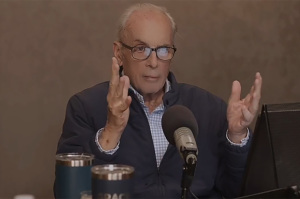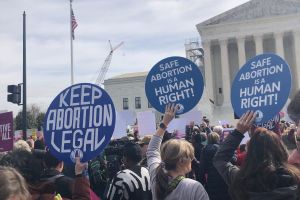Influence of US Constitution Declining Globally
The U.S. Constitution used to be the model other nations used when writing or updating their own constitutions. That influence has declined dramatically, according to a new study.
The influence of the U.S. Constitution on other constitutions around the globe peaked in the 1970s and has declined since then.
"The sad irony is around the bicentennial of the U.S. Constitution, the late 1980s, just when the Constitution turns 200, you begin to see a real drop off in similarity [with other constitutions], and in the 1990s it becomes a nosedive," said David Law, professor of law and political science at Washington University, in an interview with The Christian Post.
Law co-authored the study, "The Declining Influence of the United States Constitution," with Mila Versteeg, associate professor of law at University of Virginia School of Law, for the New York University Law Review.
The main reason for the decline, according to Law, is that the text of the document is old and there are other, better, examples of well-written constitutions that nations can emulate.
Law and Versteeg mostly compared the language dealing with citizens' rights in constitutions around the globe. They found that a lot of the rights that are not in the U.S. Constitution, but which Americans have either by statute or judicial decisions, are being put into constitutions. The right to privacy is "very popular," for example, but is not explicit in the U.S. Constitution. Protecting women from discrimination, the right to vote and a presumption of innocence are also popular in constitutions around the globe, but not found in the U.S. Constitution.
While the U.S. Constitution emphasizes negative rights, what the government cannot do, other nations are adopting positive rights, or what the government must do for you, such as, a right to health care, education or old-age income security.
"We have those things in some form or another, we just don't have those things in our constitution," Law said.
The U.S. Constitution is still influential, though, when taking a broad view of what constitutions are doing, Law explained.
"If you take enough of a bird's eye view, you do see the innovations pioneered by the U.S. showing up in most or all of the world's constitutions. The very idea of having a written constitution, that is something that we pioneered. The idea that you get together, that you talk about what would be good for civil government, you put that down on paper and you subject the government to those limits, and you back up those limits by some kind of judicial enforcement – those are pioneered by the U.S."
Law used the metaphor of a computer operating system to explain the influence of the U.S. Constitution. Apple computers' operating system is based upon a system developed in 1984. The newest operating systems still have some of that code. But, when Apple updates its operating system, it does not start with the 1984 system. The U.S. Constitution is like the 1984 system.
"These days when you buy a new computer and get a new operating system, you don't install the 1984 version, you install the 2012 version. It still has traces of the 1984 system in it. In that sense, yes, the U.S. Constitution is still influential," Law said.
In recent debates over the national debt, reforming entitlements and fixing the tax code, many have speculated whether our current government is capable of meeting the challenges that lie ahead.
When asked whether Americans should consider ways that they can amend their constitution to improve their government, Law replied, "Here is an irony. We pioneered the whole practice of getting together and talking about how some things ought to work, and figuring out our needs and our circumstances, what expresses our ideals and our hopes, putting that down on paper. We pioneered that, and yet we are the ones that don't do that anymore.
"The average lifespan of a constitution is 19 years. Jefferson said, as a coincidence, that constitutions should be revisited every 19 years. Yet, here we are, failing to revise it, except very periodically, over two centuries."
There are two primary obstacles to amending the Constitution, according to Law. First, the U.S. Constitution is one of the most difficult to amend. An amendment requires a two-thirds vote in each house of Congress and ratification by three-fourths of the states.
The second reason has to do with resistance in the public to thinking about the Constitution as a working document that can, and should, be revised.
"We put the U.S. Constitution on a pedestal," Law said. "We don't have an official religion in the U.S., thanks to the Constitution. Instead, we pledge allegiance to the Constitution. The Constitution has become for us, a symbol of nationhood.
"If you take something that's supposed to be profoundly functional, a working blueprint, and you turn it into a celebrated piece of parchment, guess what? You make it difficult, at a cultural, emotional and political level, to do the things we need to do with it to keep it working properly. To keep it up to date."
Law believes it would be better if Americans, instead of pledging allegiance to the Constitution, pledged allegiance "to the idea of adopting constitutions, of deliberating about how government should be, of setting limits for government down on paper, pledging allegiance to the rule of law. It would help us tremendously.
"As long as we celebrate the document as a sacred text, it becomes very difficult for that document to do the things we actually need it to do on a practical basis."





























